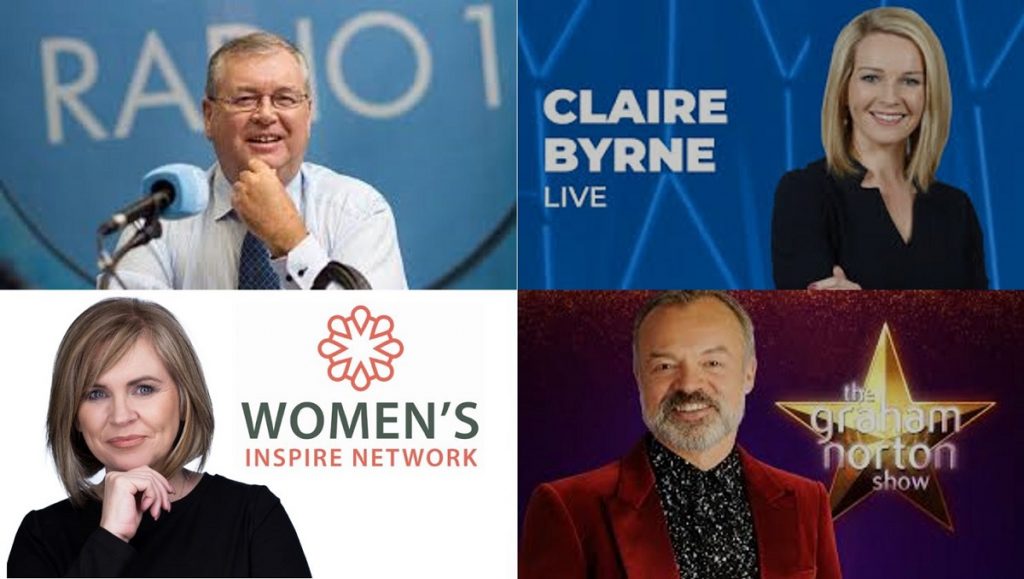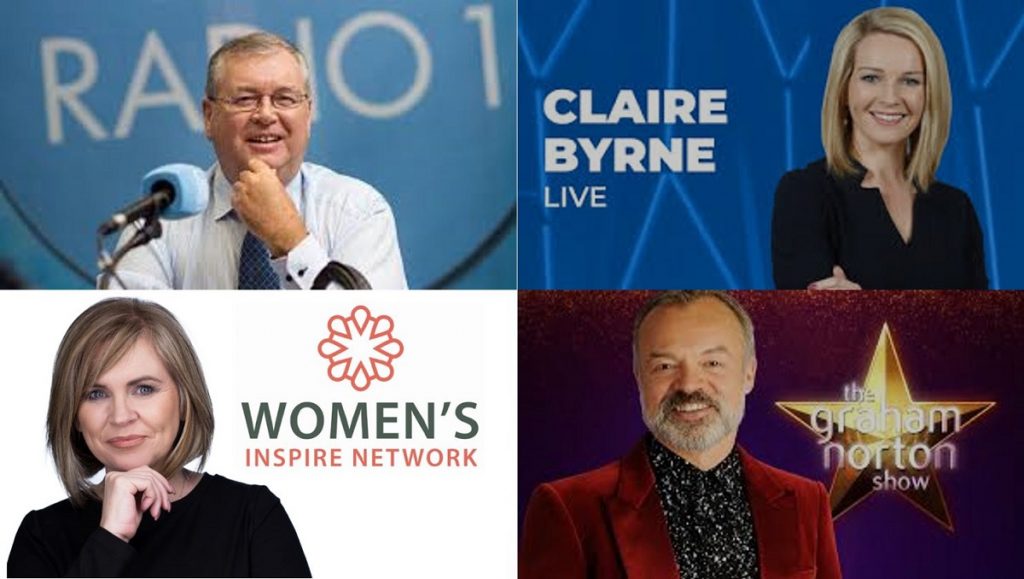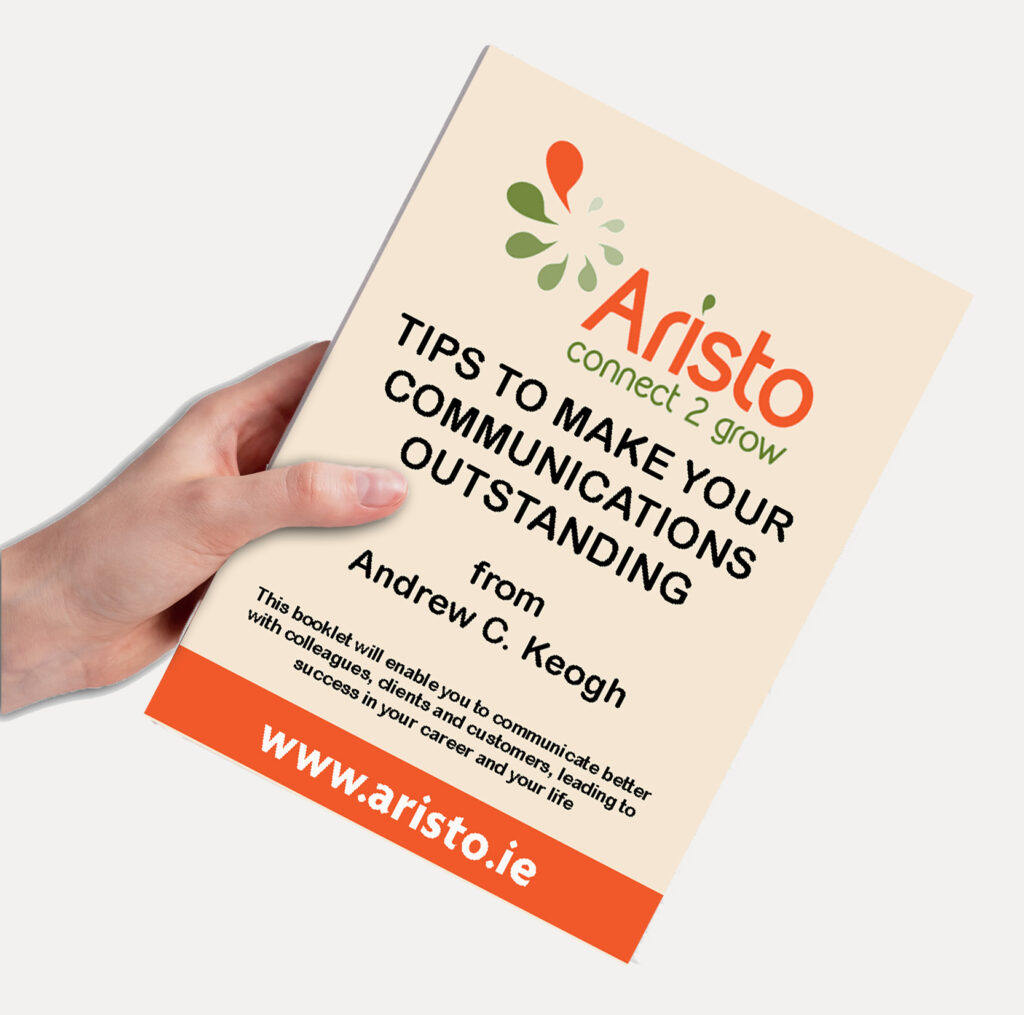
Executive Coaching Skills: The key to a successful pitch is your preparation and research.
The conversation and face to face meeting prior to having the opportunity to deliver a pitch, or send a proposal, is where the groundwork for winning proposals are established.
The images above are four of my top interviewers who always ask the right questions as a result of being well prepared: Joe Duffy, Graham Norton, Claire Byrne from Radio and TV and Samantha Kelly from Twitter / pscp.tv
A proposal must say the following:
“We understand your problem better than anybody else AND we have a solution that is tried and tested AND can be implemented with little disruption”.
Here is the groundwork that is required to ensure that your pitch and proposal can confidently say the above.
There is often push-back from my client’s teams to what I am suggesting, as historically all that was done was to pull out the previous pitch deck, change the business name on the opening slide and then get straight into talking about the product/solution and how you have a great organisation.
The usual excuse proffered for doing this is, the prospect will not allow us the time to ask questions, they just want to know about our solution and the cost!
Nothing could be further from the truth; successful presenters realize the value of getting to know their prospect and do the following:
Conduct as many meetings as practical with your prospect in order to identify a key problem(s) that requires fixing in the area that you have expertise.
This discussion/conversation must be conducted in an atmosphere of cooperation and not interrogation.
Work to be done:
I help all my clients to create a list of questions they should ask. This is where good interview skills come into play.
The message a good interviewer delivers is: I am really interested in you and your organization.
How is this done?
By asking questions in a conversational way, that are about the prospect and their organization, which often helps them to express their concerns and challenges in a way that clarifies their thinking. This also helps you to identify the problems where you can provide a solution.
When I start this process with my clients, the first questions created are all about what they want to know in order to generate a sale.
The process then is to soften the questions and make them about understanding the prospects issues.
The aim is to compile a list of questions which can be asked in a conversational way that puts the prospect at ease, allowing them to value the time required to identify problems that need fixing.
Note:
This session is not about rushing to introduce your solution.
A satisfactory outcome here is that you are recognised as a good listener, concerned for their issues and someone who clearly has expertise in this area.
Your expertise is demonstrated by the knowledgeable questions you ask. Not by some half-baked sales pitch.
Success is gaining the prospects interest and attention.
You can now withdraw and suggest you will be back shortly with suggestions as to how you can help them.
Alternatively, based on your understanding of the situation, you can move on to tell them a story of how you solved their problem for a previous client.
My preference would be to return another day with a pitch tailored to their particular needs.
The work I do at this point for my client, is to create a pool of experts with the ability to ask questions, listen to the replies and ask the next question based on the answers proffered by the prospect.
The Skill can be explained simply:
“You listen to understand, not just to reply”
This is what great interviewers do.
Who do you believe are the TV /Radio/ Podcast interviewer who do this best?
You would probably agree that these are people at the top of their game. You can develop this skill and be recognized as an expert in your field.




